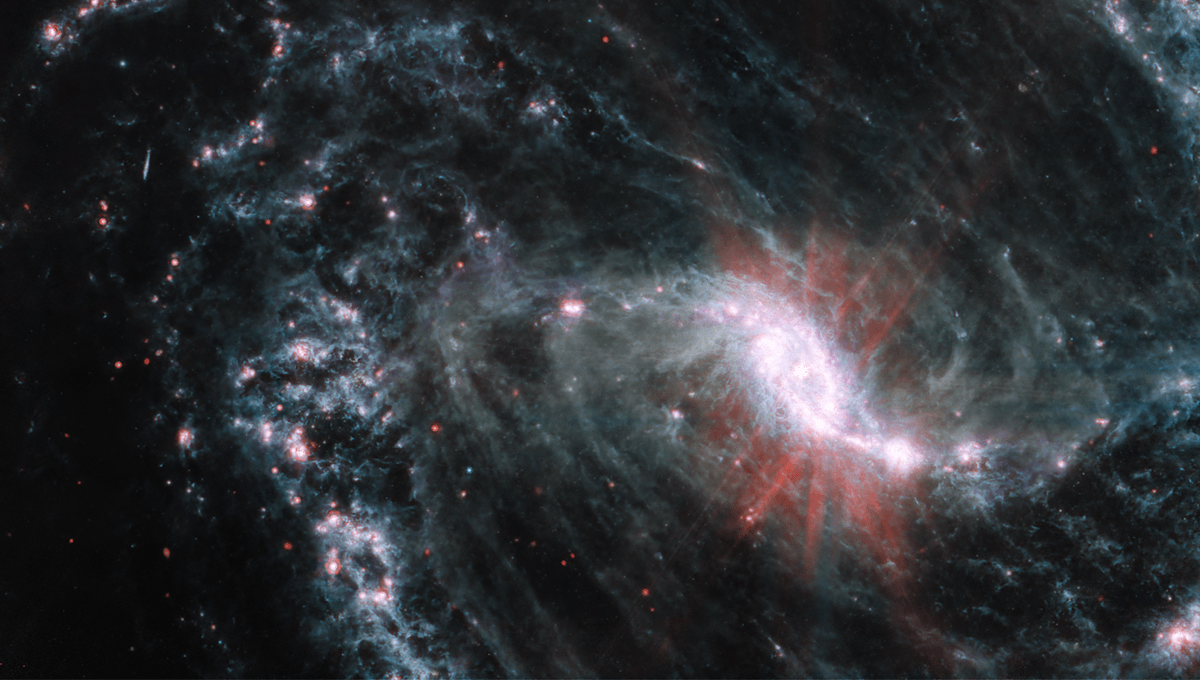Hubble Tension Drama Continues: JWST Data In A Tug-Of-War Between The Two Camps

Hubble Tension Drama Continues: JWST Data In A Tug-Of-War Between The Two Camps
The Hubble Tension is one of the most fascinating scientific debates of the last decade. Imagine having two of the most advanced conducting cutting-edge observatories to extract the expansion rate of the universe. You refine your values, collect more data, and suddenly the two observatories begin to disagree. Is one right and the other wrong? Are they both wrong? Is it the model of the universe that is wrong instead? So you add a third cutting-edge observatory, and the answers get more confusing. Seriously, pass us a bucket of popcorn!
We are being a bit silly, but the saga of the Hubble Tension is a fascinating look into how science is made. Despite the Soap Opera qualities, we are seeing pretty much in real time how different groups can use data and observations from the same telescopes, and due to different analyses, they have different findings and different uncertainties. The European Space Agency’s Planck satellite created an exquisite map of the Cosmic Microwave Background. With that, the team was able to estimate the value of the Hubble Constant – the expansion rate of the Universe today. Its value, according to Planck, is 67.4 kilometers (42 miles) per second per megaparsec, with 1 megaparsec being 3.26 million light-years. This means that if two galaxies are 1 megaparsec apart, the expansion of the universe would make them look like they are moving away from each other at a speed of 67.4 kilometers per second. Another team measured the Hubble Constant with the Hubble telescope by looking at how fast galaxies appear to move away. They did that by estimating their distances using standard candles, such as certain supernovae or variable stars. This approach gave a value of 72.8 kilometers (45.2 miles) per second per megaparsec. The uncertainties on each value are small, and they don’t overlap. The numbers, even in scientific terms, are different. One explanation is that our model of the universe is wrong, so we will need to change it, which in turn would provide a different value from Planck. The other explanation is that one or both of the measurements are underestimating their uncertainties, with the true value being something in between. To this arena, entered JWST. Last year, Professor Wendy Freedman of the University of Chicago and her team found a value for the expansion rate of 69.96 kilometers (43.5 miles) per second per megaparsec using data from JWST. A few months later, using some of the Freedman data from JWST and other observations, Professor Adam Riess instead argued that Hubble and JWST agreed. The tension is still there. Freedman and colleagues have recently published a new analysis incorporating both Hubble and JWST data, and once again, they found a value between the two camps: 70.39 kilometers (43.7 miles) per second per megaparsec, with an uncertainty that covers both other values. "This new evidence is suggesting that our Standard Model of the universe is holding up," Professor Freedman said in a statement. "We've more than doubled our sample of galaxies used to calibrate the supernovae. The statistical improvement is significant. This considerably strengthens the result." "There have been well over 1,000 papers trying to attack this problem, and it's just turned out to be extraordinarily difficult to do," she added. The team is going to look at even more galaxies to help refine this measurement. They are targeting observations of the Coma cluster next year. This would allow them to sidestep the need for supernovae and conduct an independent check of their methods. Until then, it is certain that we will hear from other teams – but maybe a solution to the Hubble Tension is just a few years away. A paper with these findings is published in The Astrophysical Journal.


